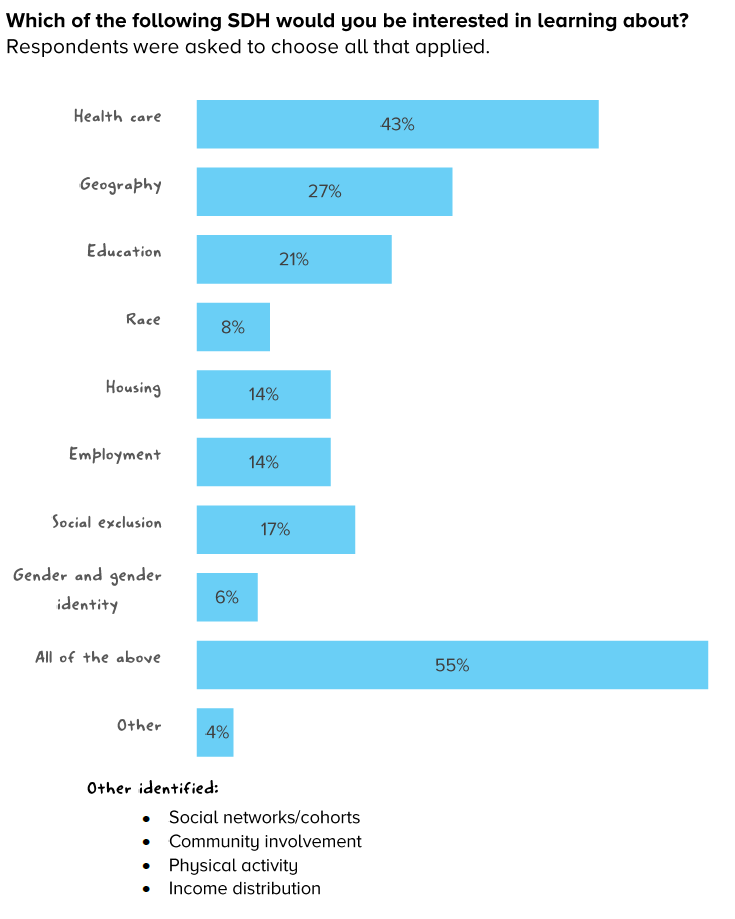The thirteenth Rural Voice Information Panel (Rural VIP) survey was sent out October 1, 2020 to 218 members. The purpose of the survey was to determine the level of understanding of and interest in the social determinants of health, determine if there is a need for RhPAP to provide learning or information-sharing opportunities and increase general awareness on the social determinants of health.
Social determinants of health are defined by the Government of Canada as “the broad range of personal, social, economic and environmental factors that determine individual and population health.” These factors can include health care, geography, education, race, housing, employment, social exclusion, and gender and gender identity.
Key findings
 Overall, when asked to rate their overall understanding of the social determinants of health on a scale of 1-10 (10 being high), the average rating of respondents was7.4, with almost all respondents (97 per cent) indicating that they have at least some level of interest in learning more about social determinants of health.
Overall, when asked to rate their overall understanding of the social determinants of health on a scale of 1-10 (10 being high), the average rating of respondents was7.4, with almost all respondents (97 per cent) indicating that they have at least some level of interest in learning more about social determinants of health.
Asked about which determinants of health in particular they were interested in learning more about, 43 per cent of respondents indicated that they would be interested in learning about all social determinants of health, the same percentage were interested in the determinants related to health care, and smaller groups of respondents were interested in education (16 per cent) and social exclusion (13 per cent) determinants of health.
Respondents were given an opportunity to share their opinions regarding the challenges to rural health that existed in their communities. Responses were reflected in four prevalent themes: health-care providers (turnover, attraction, and retention); timely access to physicians and specialists; local access to resources and services; and transportation.
A sampling of comments on rural health-care challenges:
- “Services not delivered to rural communities, because urban policy makers don’t have an understanding of rural challenges.”
- “Fewer resources in Rural Alberta and the trend seems to be swinging toward virtual care, which does not always resonate with rural Albertans. Also, internet connectivity can be a real issue in rural Alberta, so virtual care will not always work.”
- “Attracting potential physicians to come to rural… .”
Next steps
The feedback from this survey will inform the development of RhPAP’s educational resources and programming, so that we can further the awareness and understanding of rural Albertans about the role of social determinants of health in Rural Alberta. Stay tuned as we developed resources to help answer the questions put forward by rural community members through Rural VIP!
We are also sharing the results and feedback from this survey with interested stakeholders as well as the rural groups who are represented on the panel. Each month, RhPAP shares learnings and feedback from the Rural VIP with Alberta Health and the RhPAP Board of Directors, who represent the following organizations: Alberta Health Services, Alberta Medical Association, the College of Physicians and Surgeons of Alberta, Rural Municipalities of Alberta, and the College and Association of Registered Nurses of Alberta.
